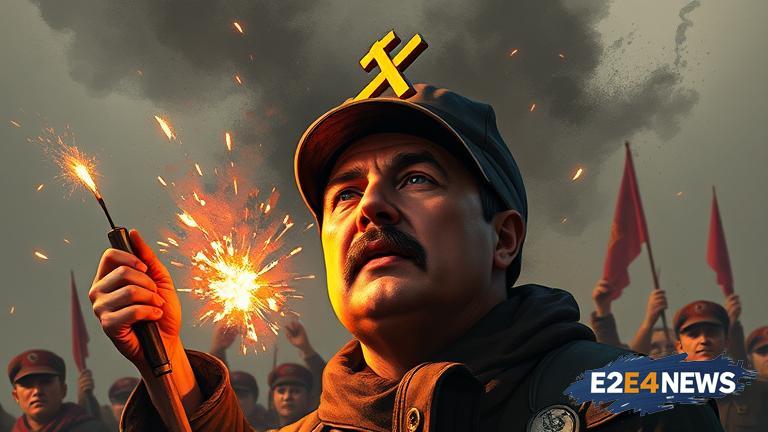In a recent livestream, popular Twitch personality Hasan Piker made a statement that has sent shockwaves throughout the online community. Piker, known for his left-leaning views, expressed his opinion that communism is the ultimate goal of socialism, referring to it as an ‘honorable end goal’. This statement has sparked a heated debate, with many taking to social media to express their opinions on the matter. Some have come to Piker’s defense, arguing that his comments were taken out of context and that he was simply expressing his genuine beliefs. Others, however, have been quick to condemn Piker’s views, labeling them as radical and misguided. The controversy surrounding Piker’s comments has highlighted the deep-seated divisions within the online community, with some calling for greater tolerance and understanding, while others demand accountability for what they see as extremist views. As the debate rages on, it remains to be seen how Piker’s comments will impact his reputation and relationships with his fans. The incident has also raised questions about the role of social media platforms in regulating and promoting free speech. With the rise of online personalities and influencers, the lines between entertainment and politics have become increasingly blurred. Piker’s comments have served as a catalyst for a broader discussion about the limits of free speech and the responsibilities that come with having a large online following. The Twitch community, in particular, has been at the forefront of this debate, with many users weighing in on the issue. Some have argued that Piker’s comments are a reflection of the platform’s lack of regulation and oversight, while others see it as an opportunity for growth and education. As the online community continues to grapple with these complex issues, it is clear that the controversy surrounding Piker’s comments will have far-reaching implications. The debate has also sparked a renewed interest in the principles of socialism and communism, with many seeking to educate themselves on the differences between the two ideologies. Furthermore, the incident has highlighted the importance of critical thinking and media literacy in the digital age. With the proliferation of misinformation and disinformation online, it is essential that users are able to critically evaluate the information they consume and make informed decisions. In the context of Piker’s comments, this means considering the nuances of his statement and the potential implications of his words. The controversy has also raised questions about the role of influencers and online personalities in shaping public opinion and discourse. As social media continues to play an increasingly prominent role in our lives, it is essential that we consider the potential consequences of our words and actions online. In conclusion, the debate surrounding Piker’s comments on communism and socialism has sparked a vital and necessary conversation about the limits of free speech, the role of social media, and the importance of critical thinking and education. As we move forward, it is essential that we approach these issues with empathy, understanding, and a commitment to fostering a more inclusive and informed online community. The incident has also sparked a renewed interest in the history and principles of communism and socialism, with many seeking to learn more about these complex and often misunderstood ideologies. Additionally, the controversy has highlighted the importance of diversity and representation in online communities, with many calling for greater inclusivity and diversity in the world of online streaming and entertainment. Ultimately, the debate surrounding Piker’s comments serves as a reminder of the power and potential of social media to shape our perceptions and understanding of the world around us.
